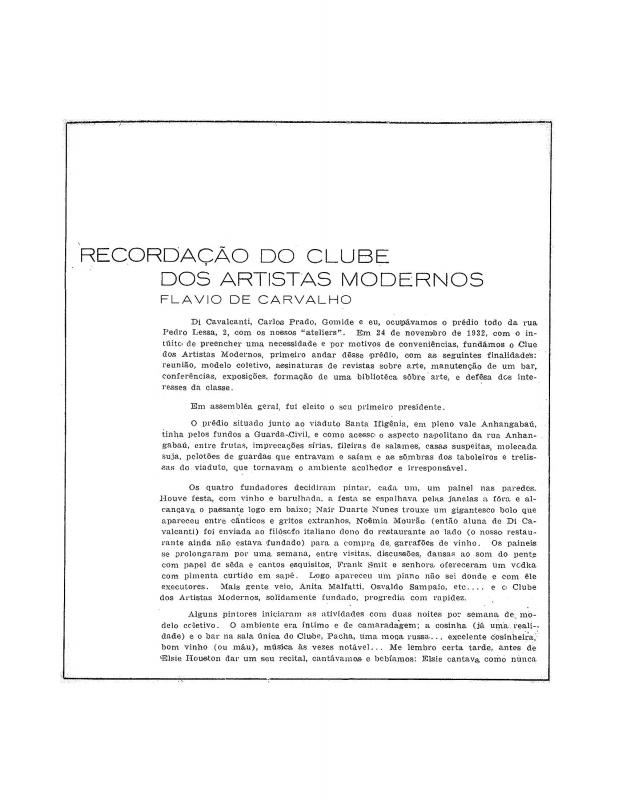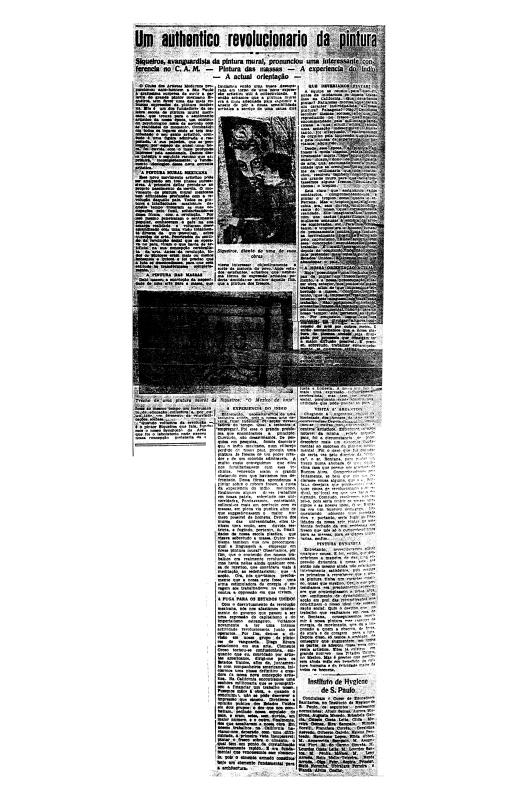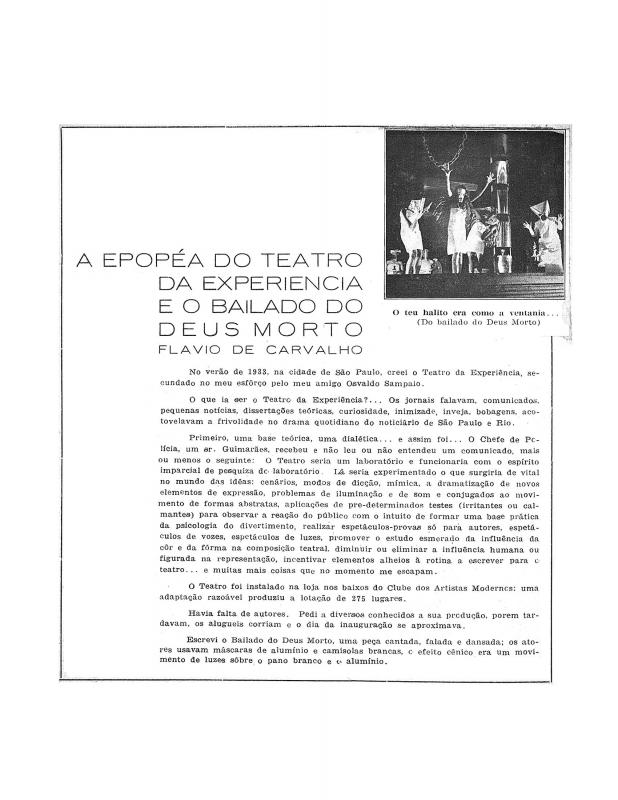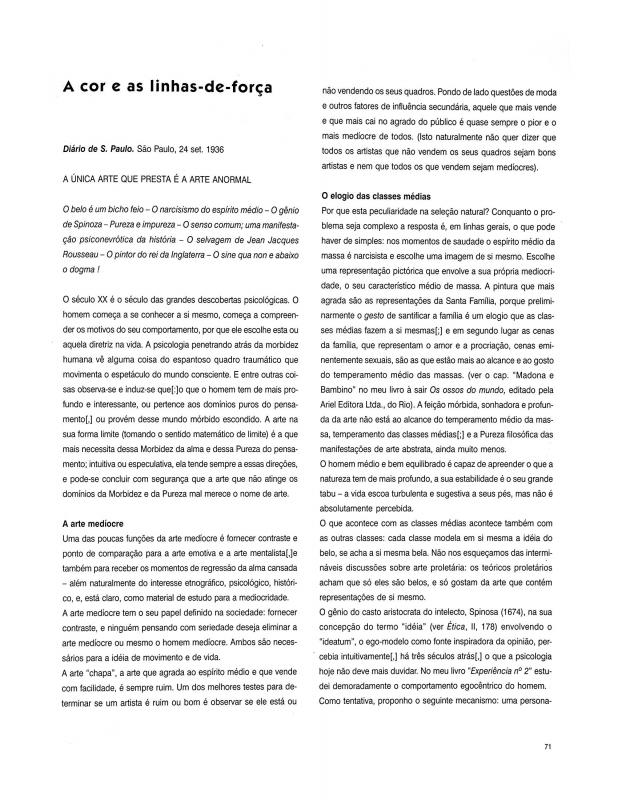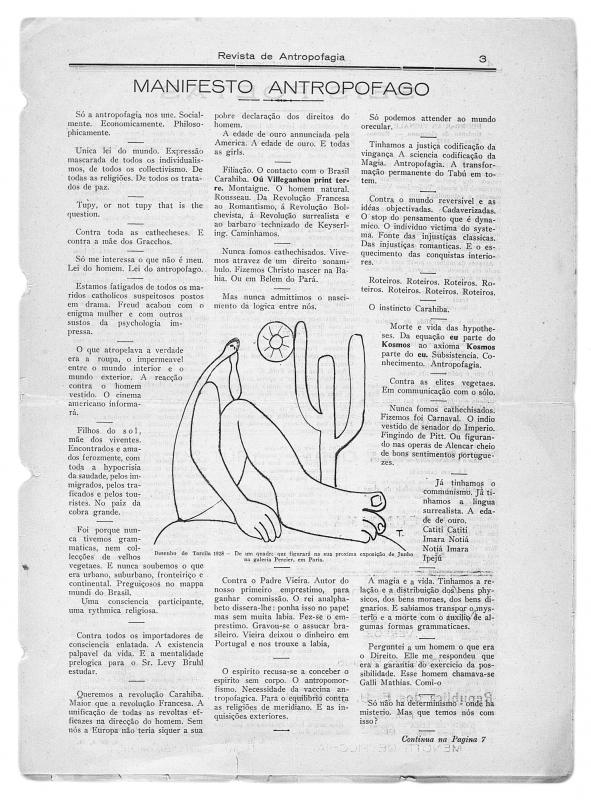Over the course of his controversial career, the author focused mainly on the expression of psychological ideas in a variety of media, including the visual arts, the theater, and architecture. In this essay on “the city of naked men” he relies on ideas inspired by Freudian psychoanalysis to present his urban design project whose implementation sounds fantastic because it is largely based on “the mental renewal” of the citizens involved.
Flávio de Carvalho gave this lecture in Rio de Janeiro at the IV Congresso Panamericano de Arquitetos, where he spoke as a representative of the “anthropophagus ideology” that had been advocated in São Paulo since 1928 by a group of Brazilian modernists including: Oswald de Andrade, Raul Bopp, Oswaldo Costa, Clóvis Gusmão and many others. There is a substantial contradiction in de Carvalho’s ideas, a conflict between an urban environment devoted to the (erotic or even irrational) pleasure of primitive man, and the rational approach to modern architecture that was then in vogue (influenced by Le Corbusier) and was essentially focused on the practical functionality of the organization of the city.
Even at an institutional level Flávio de Carvalho (1899–1973) never ceased to advocate his experimental ideas. He joined forces with the painters Emiliano Di Cavalcanti, Carlos Prado, and Antonio Gomide to found the CAM (Club de los Artistas Modernos) in São Paulo, whose initial goal was to promote activities such as “group events presented in public spaces”—see his essay “Recordação do Clube dos Artistas Modernos” [ICAA digital archive, doc. no. 781340]. Not satisfied with the concept of CAM—which hosted speakers from among the ranks of unconventional critics such as Mário Pedrosa and Caio Prado and the muralist “speaker,” as he describes David Alfaro Siqueiros (doc. no. 777225)—de Carvalho pushed his urban ideas to even more radical limits with an “experimental laboratory” at the CAM premises in which his transformative concept became more feasible when he sought to express it in a theatrical performance rather than through the citizens involved; see “A epopéia do teatro da experiencia e o bailado do deus morto” (doc. no. 780339).
To refer to de Carvalho’s complementary text to this document, see “A única arte que presta é a arte anormal” (doc. no. 1084943). Regarding several references made by de Carvalho to a key text for a number of writers from that period, which was an essential source for his naked man thesis, see the 1928 “Manifesto antropófago” (doc. no. 771303).

